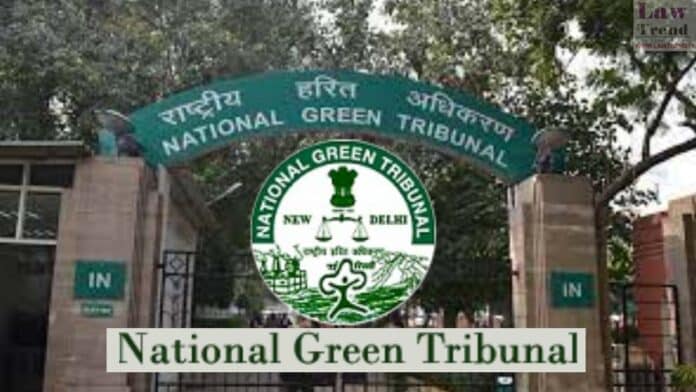The National Green Tribunal (NGT) has directed the Mizoram government to submit a fresh and detailed report on its solid and liquid waste management systems after finding “irregularities and deficiencies” in the state’s previous submission.
A Principal Bench led by Justice Prakash Shrivastava, Chairperson of the NGT, passed the direction during a hearing held on October 13 on the state’s compliance with the Municipal Solid Waste Management Rules, 2016 and related environmental obligations.
The tribunal noted that the state’s earlier status report lacked proper certification and was not filed as an affidavit by the Chief Secretary or any senior official, raising doubts about the reliability of the data. The bench said the report failed to provide a clear picture of waste collection, processing, and treatment mechanisms despite repeated monitoring by the NGT.
“The status report reflects ineffectiveness in planning and execution strategies as well as deficiencies in bridging the gaps in waste management,” the bench observed.
According to the report examined by the NGT, Mizoram generates approximately 398.15 tonnes of solid waste per day, of which 330.5 TPD is processed, while 67.65 TPD remains unprocessed, adding to the state’s legacy waste.
The tribunal pointed out that the report did not specify whether door-to-door waste collection and segregation were being implemented by the 28 urban local bodies (ULBs). It also lacked information on the operational status of composting plants and Refuse-Derived Fuel (RDF) facilities, as well as concrete timelines to bridge the gaps in processing.
The NGT also found lapses in liquid waste management. Mizoram reportedly generates 51.81 million litres per day (MLD) of wastewater — 31.37 MLD from urban and 20.44 MLD from rural areas — but has only 10 MLD treatment capacity in Aizawl, leaving an urban treatment gap of 21.37 MLD.
Of the state’s 11 districts, sewage management plans in 10 districts are yet to be finalised, and the proposed 27 MLD sewage treatment capacity has no defined implementation timelines.
Directing strict compliance, the tribunal ordered the Mizoram government to file a revised Action Taken Report (ATR) through an affidavit, with details on solid and liquid waste generation, collection, transportation, processing, legacy waste, gap analysis, fund allocation, and timelines.
It also instructed that funds must be allocated to each local body and executing agencies must finalise work plans before the next hearing on November 5.
The bench further directed the state to submit a comprehensive sewage management report covering treatment capacity, gap analysis, and utilisation of treated water.




